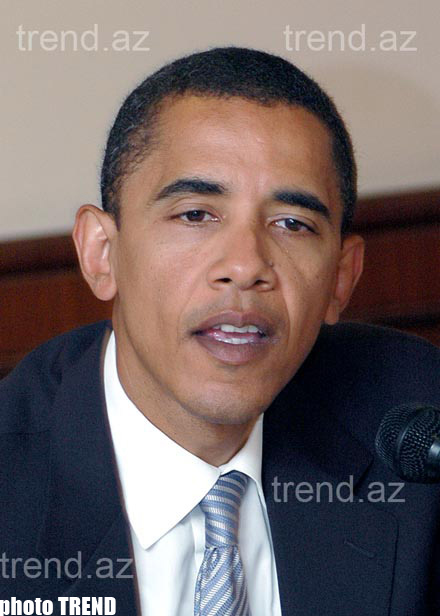President Barack Obama is to pledge to cut greenhouse gas emissions in the US in several stages, beginning with a 17% cut by 2020, the White House has said, BBC reported.
The offer will be made at December's UN climate talks in Copenhagen, which Mr Obama will attend.
But he does not plan to be there for the crucial last days, when delegates including other world leaders are hoping to pull together a deal.
The talks aim to draw up a new treaty to supplant the 1997 Kyoto Protocol.
UN climate chief Yvo de Boer said his attendance could be vital for a deal.
"It's critical that President Obama attends the climate change summit in Copenhagen," he told journalists.
The cuts Mr Obama has proposed are similar to those included in a bill passed by the US House of Representatives in June.
But with legislation currently stuck in the Senate, correspondents say the president will be unable to commit to any of the figures he is proposing at the summit.
So far more than 60 world leaders have said they will attend.
Observers say the presence of such figures as Mr Obama will raise hopes for action on climate change, although the talks are not expected to result in a new treaty.
'Momentum for talks'
Officials said the US would pledge a 17% cut in emissions from 2005 levels by 2020, 30% by 2025, 42% by 2030 and 83% by 2050.
Where countries stand on summit
Mr Obama will outline a "pathway" towards the US goals at the summit, a White House statement said.
It described the cuts as "a significant contribution to a problem that the US has neglected for too long".
But most other countries' targets are given in comparison with 1990 figures.
BBC environment correspondent Richard Black says that on that basis the US figure amounts to just a few percentage points, as its emissions have risen by about 15% since 1990.
This is much less than the EU's pledge of a 20% cut over the same period, or a 30% cut if there is a global deal; and much less than the 25-40% figure that developing countries are demanding.
The US president will be in the Danish capital on 9 December, a day before receiving his Nobel Peace Prize in Oslo.
But he does not plan to return for the key last stages of the 7-18 December summit.
Major priority
Responding to the announcement, European Commission president Jose Manuel Barroso said: "I welcome that President Obama has committed to come to Copenhagen.
I'm sure the event in Copenhagen will be beneficial for Planet Earth
"I have made clear that we need as many world leaders present as possible. I hope that others will follow suit."
The announcement was also welcome by environmental group Friends of the Earth.
"Obama's pledge to go to Copenhagen is a welcome and significant development - but he must adopt a 'Yes we can' attitude in the UN climate talks if he is to earn his Nobel prize," spokesman Tom Picken said.
"The US is the world's biggest per capita polluter. It has a moral responsibility to take the lead in securing a strong and fair agreement."
The decision follows intense speculation about whether the US president would go at all.
Delegations from 192 countries will be attending the summit.
Leaders saying they will attend include UK Prime Minister Gordon Brown, French President Nicolas Sarkozy and Brazilian President Luis Inacio Lula da Silva.
Hu Jintao, president of the world's largest polluter, China, is yet to commit to attending.
The US is the second largest polluter after China.
Mr Obama has made climate change a major priority for his administration, after previous incumbents had failed to ratify the Kyoto treaty.
But a bill to cap US emissions and establish a national carbon trading scheme is currently stuck in the Senate and is not expected to pass before the end of the year.
Correspondents say most nations have given up hope of a legally binding treaty because of uncertainty about the US position.






